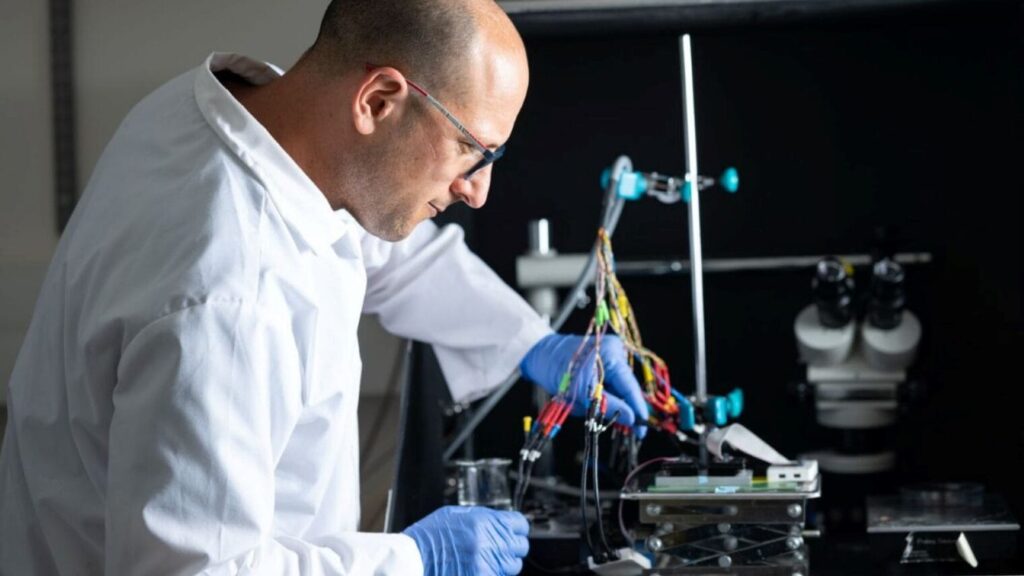
Treating Postpartum Depression
May 10, 2016
Medical Research, Press Releases, Social Sciences & Humanities
BGU researchers have issued new guidelines for treating perinatal mood and anxiety disorders (PMADs), based on a recent study. The guidelines are being released to coincide with National Maternal Depression Awareness Month that occurs this month.
According to the National Coalition for Maternal Mental Health, more than 600,000 women (one in seven) in the United States experience depression and anxiety during pregnancy or within 12 months of childbirth. These illnesses, which frequently go unnoticed and untreated, often have tragic, long-term consequences that can affect a mother’s well-being, her child’s cognitive and behavioral development, the health of her marriage, and family stability.
Women of every culture, age, income level, and race may develop perinatal mood and anxiety disorders. Symptoms appear any time during pregnancy or the first 12 months after childbirth.
“Our new study, which will be submitted for publication later this year, contains excellent guidelines for treating mothers coping with perinatal mental health challenges,” says Prof. Julie Cwikel, founder of BGU’s Center for Women’s Health Studies and Promotion. “These disorders affect millions of women around the world, yet only a third of them actually get treatment.”
BGU’s study recommends:
- Training psychotherapists, social workers, medical doctors, nurses, psychologists—basically all mental health professionals—to identify PMADs, conduct short- and long-term treatment (psychotherapy), and refer for medications when necessary
- Providing psychotherapy for mild cases of PMAD in a private setting so women can get the help they need without being stigmatized or worrying about documentation showing up in medical files
- Psychotherapy combined with psychiatric medication under medical supervision for more serious cases
- Setting up wards in general hospitals where mothers who require hospitalization can be cared for along with their infants to avoid any long breaks in infant-mother attachment which may affect psycho-emotional regulation later in life
- Paying more attention to nutrition during pregnancy, as some women become anemic and have difficulty functioning due to lack of iron, B12 and other essential vitamins
- Mandatory screening for perinatal and postnatal women
While the epidemiology of these disorders is very clear, and there is mandatory screening in place for perinatal and postnatal women, Prof. Cwikel is concerned about the lack of national programs for providing treatment. “The research is very clear,” she emphasizes. “Treating depression in pregnant and postpartum women benefits both the mothers and their children in the short- and long-term.”
In fact, a new study published in May by Brigham and Women’s Hospital in Boston shows “if you treat depressed women when they’re pregnant, you reduce premature and low-weight births,” says Cwikel. She also cites a U.K study, which concludes that if a mother is depressed when she has her baby, the child will be four times more likely to suffer from depression as a teenager. Another U.S. study showed that for every dollar invested in treating PMADs, you can save approximately seven dollars in future treatment. This could reduce the need for remedial educational programs and ongoing mental healthcare for the mother and her other children.
“Many women believe they need to stop breastfeeding while taking anti-depressive medications,” adds Prof. Cwikel. “However, there are now several well-accepted medications that do not harm a nursing infant.”
BGU’s study was conducted by Prof. Cwikel, Prof. Orly Sarid and doctoral student Meital Simhi of the Charlotte B. and Jack J. Spitzer Department of Social Work, along with representatives of Israel’s Rehovot District Ministry of Health and health economist Dr. Racheli Magnezi from Bar Ilan University.
ABOUT AMERICANS FOR BEN-GURION UNIVERSITY
By supporting a world-class academic institution that not only nurtures the Negev, but also shares its expertise locally and globally, Americans for Ben-Gurion University engages a community of Americans who are committed to improving the world. David Ben-Gurion envisioned that Israel’s future would be forged in the Negev. The cutting-edge research carried out at Ben-Gurion University drives that vision by sustaining a desert Silicon Valley, with the “Stanford of the Negev” at its center. The Americans for Ben-Gurion University movement supports a 21st century unifying vision for Israel by rallying around BGU’s remarkable work and role as an apolitical beacon of light in the Negev desert.
About Ben-Gurion University of the Negev
Ben-Gurion University of the Negev embraces the endless potential we have as individuals and as a commonality to adapt and to thrive in changing environments. Inspired by our location in the desert, we aim to discover, to create, and to develop solutions to dynamic challenges, to pose questions that have yet to be asked, and to push beyond the boundaries of the commonly accepted and possible.
We are proud to be a central force for inclusion, diversity and innovation in Israel, and we strive to extend the Negev’s potential and our entrepreneurial spirit throughout the world. For example, the multi-disciplinary School for Sustainability and Climate Change at BGU leverages over 50 years of expertise on living and thriving in the desert into scalable solutions for people everywhere.
BGU at a glance:
20,000 students | 800 senior faculty | 3 campuses | 6 faculties: humanities & social sciences, health sciences, engineering sciences, natural sciences, business & management, and desert research.
For all press inquiries, please contact:
James Fattal, J Cubed Communications
516.289.1496




